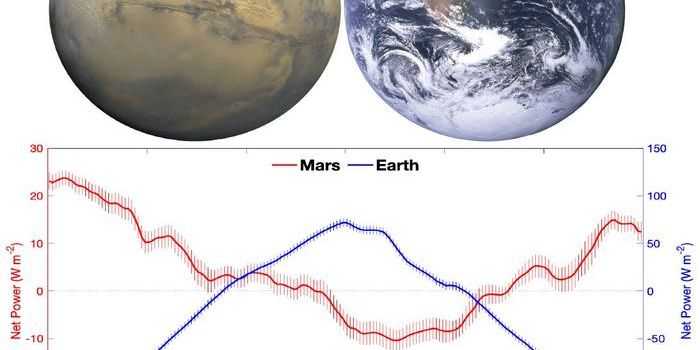Atlantic Ocean Current Will Collapse in 40 Years, Scientists Predict
A new study published in Nature Communications predicts that an important ocean current will collapse in 2057 if greenhouse gas emissions continue at their present rate.
The ocean current, known as the Atlantic Meridional Overturning Circulation (AMOC), is a key part of ocean temperature regulation via a global system of ocean currents. It accounts for the largest part of heat redistribution across the Atlantic Ocean, circulating warmer water from the tropics into cooler regions in the north, while bringing cooler water from the depths of the north to the south. In the study, the authors called it “one of the most important tipping elements in Earth’s climate system.”
The paper’s authors, two researchers from the University of Copenhagen's Niels Bohr Institute and Department of Mathematical Sciences, used advanced statistical tools to analyze ocean temperature data from the last 150 years. Looking at sea surface temperatures dating from 1870 to the present, they inferred the AMOC fingerprint for this time period.
Their findings predicted, with 95% certainty, that the AMOC will collapse during the years between 2025 and 2095. The most likely collapse would occur in 2057.
These results contradict the assessments in the latest Intergovernmental Panel on Climate Change (IPCC) report, which had predicted full collapse to be unlikely in the 21st century. The report and the study do agree on one point, however — impacts from a collapse of the AMOC would be drastic, with far-reaching implications for the global climate.
"Shutting down the AMOC can have very serious consequences for Earth's climate, for example, by changing how heat and precipitation are distributed globally," said study co-author Peter Ditlevsen. “While a cooling of Europe may seem less severe as the globe as a whole becomes warmer and heat waves occur more frequently, this shutdown will contribute to an increased warming of the tropics, where rising temperatures have already given rise to challenging living conditions.”
The AMOC, or Thermohaline Circulation, converts surface water into deep ocean currents, which move south, allowing other surface water to move north from the equator. This function helps maintain the North Atlantic’s mild climate. A collapse of the AMOC could cause cooling of the climate in Europe and increased storminess, as well as warming in the tropics.
"Our result underscores the importance of reducing global greenhouse gas emissions as soon as possible," said Peter Ditlevsen.
Sources: Nature Communications; IPCC; University of Copenhagen; ScienceDaily








